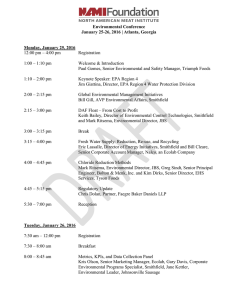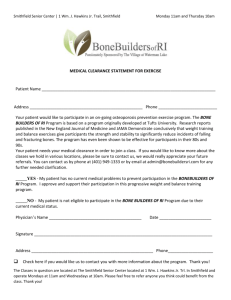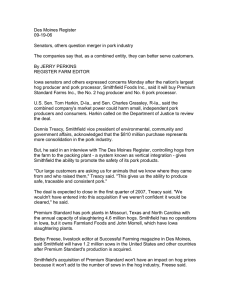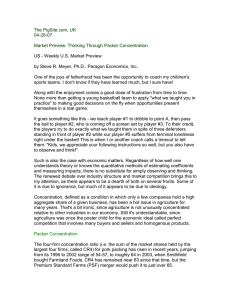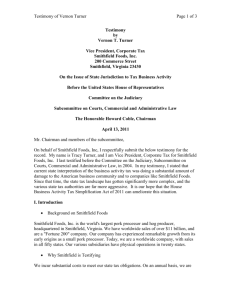CattleNetwork.com, KS 08-23-06
advertisement
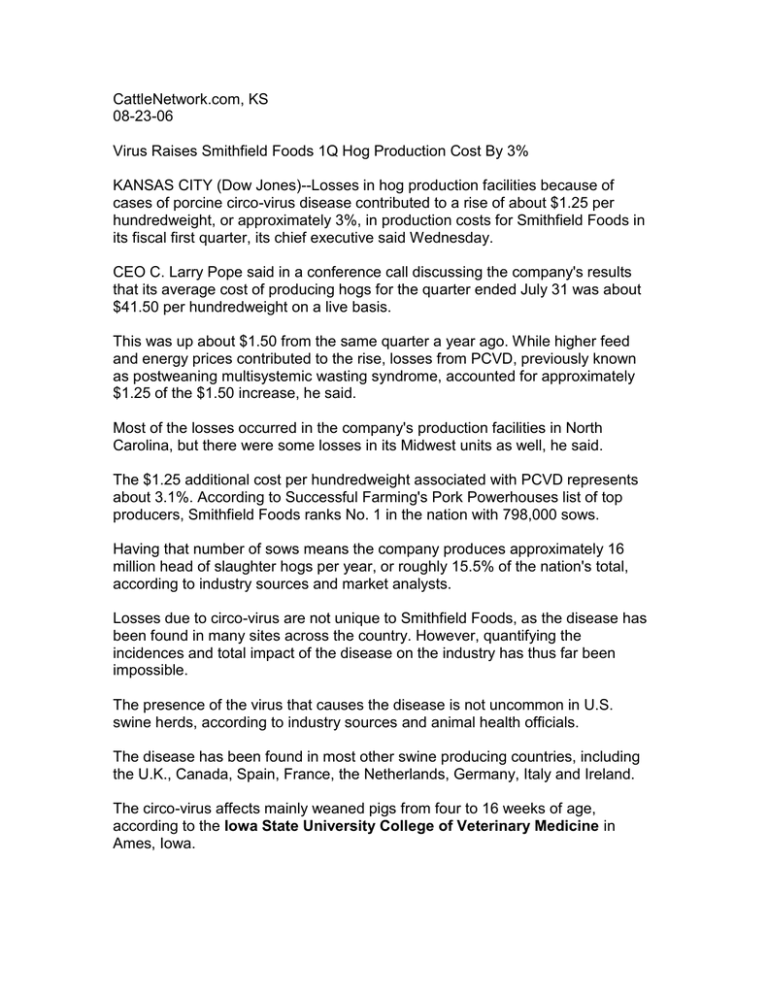
CattleNetwork.com, KS 08-23-06 Virus Raises Smithfield Foods 1Q Hog Production Cost By 3% KANSAS CITY (Dow Jones)--Losses in hog production facilities because of cases of porcine circo-virus disease contributed to a rise of about $1.25 per hundredweight, or approximately 3%, in production costs for Smithfield Foods in its fiscal first quarter, its chief executive said Wednesday. CEO C. Larry Pope said in a conference call discussing the company's results that its average cost of producing hogs for the quarter ended July 31 was about $41.50 per hundredweight on a live basis. This was up about $1.50 from the same quarter a year ago. While higher feed and energy prices contributed to the rise, losses from PCVD, previously known as postweaning multisystemic wasting syndrome, accounted for approximately $1.25 of the $1.50 increase, he said. Most of the losses occurred in the company's production facilities in North Carolina, but there were some losses in its Midwest units as well, he said. The $1.25 additional cost per hundredweight associated with PCVD represents about 3.1%. According to Successful Farming's Pork Powerhouses list of top producers, Smithfield Foods ranks No. 1 in the nation with 798,000 sows. Having that number of sows means the company produces approximately 16 million head of slaughter hogs per year, or roughly 15.5% of the nation's total, according to industry sources and market analysts. Losses due to circo-virus are not unique to Smithfield Foods, as the disease has been found in many sites across the country. However, quantifying the incidences and total impact of the disease on the industry has thus far been impossible. The presence of the virus that causes the disease is not uncommon in U.S. swine herds, according to industry sources and animal health officials. The disease has been found in most other swine producing countries, including the U.K., Canada, Spain, France, the Netherlands, Germany, Italy and Ireland. The circo-virus affects mainly weaned pigs from four to 16 weeks of age, according to the Iowa State University College of Veterinary Medicine in Ames, Iowa. The syndrome, identified in western Canada in 1991, causes progressive weight loss, jaundice, overall reduced performance, and in severe cases can result in mortality rates of up to 40%. The effects of the disease can be more severe when accompanied by other diseases such as porcine reproductive and respiratory syndrome, other agents and unusual environmental conditions, according to a fact sheet on the National Pork Board's Web site. Pope said the company is seeing about the same level of losses from PCVD as a year ago. He said the company's production facilities are testing vaccines for the virus. Swine producers also utilize high biosecurity measures and sanitation practices to control the disease, sources said. Smithfield Foods is the nation's largest pork processor and hog producer. -By Curt Thacker; Dow Jones Newswires; 913-322-5178; curt.thacker@dowjones.com

